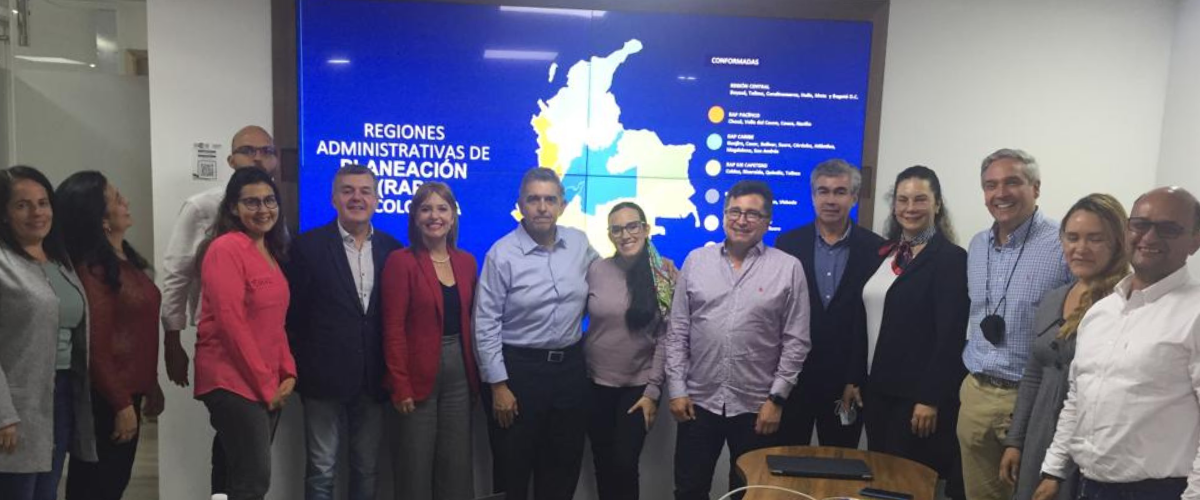ORU Fogar advises the Government of Colombia in its process of decentralization

The former President of ORU Fogar, Paúl Carrasco and the Secretary General of the organization, Carles Llorens, were invited by the National Planning Department of the Colombian Government to a meeting in which they shared both national and international experiences to consolidate the decentralization process of the country. Precisely, on May 5, both participated in the seminar "Territorial Associativity. A commitment to regional development", which was also attended by various officials from central government, as well as representatives of Colombian regions and departments.
In his speech, Paul Carrasco, after stating that centralism "is a failure", called for a decentralization process that would give political and financial autonomy to the territory. "This process must count on the participation of the people, who must understand very well what the region is dedicated to. If decentralization is a technocratic process, it is going nowhere." He applauded the fact that the National Planning Department and the Colombian Government were promoting these processes and advocated for the institutional continuity of this endeavor, at a time when Colombia is just a few weeks away from presidential elections.
Carles Llorens, for his part, turned to history to explain that a centralized state with borders or a capital without internal diversity, was an artifact that came from the 17th century and was born to wage war. "Now, when we no longer have to wage war, but rather promote development, that artifact is of no use to us". Thus, ORU Fogar's Secretary General referred to experiences that completely break those parameters, such as the commonwealths of regions or cross-border projects.
What is worth mentioning is that the 1991 Constitution and the Regions Law of 2011 protect the Colombian decentralization process. This law aims to dictate the organic rules to strengthen the Administrative and Planning Region (RAP), which should gather several departments. The first RAP constituted was RAP-E Central in 2015, then came the RAP Pacific in 2016. Today, with various degree of development, there are ten different regions in the country. However, the regulatory deployment and transfer of competences envisaged by the 2011 Law has not taken place.
In this context, the interventions of some regional managers at the seminar were particularly significant. Camilo Lloreda, manager of RAP Pacífico, addressed the need to plan development processes as a mission and goal of the regions. Ricardo Agudelo, manager of RAP-E Central, a region that includes the country's capital, Bogota, argued that the regions have a key role to play in the implementation of comprehensive rural reform. He stressed that this is fundamental to consolidate the peace process in the country, as much as to win "in the fight against cocaine cultivation".
The day before, Carles Llorens held a meeting at the headquarters of RAP-E Central, with representatives of the RAP Central, Pacific, Axis of Coffee, and Amazonas. ORU Fogar's Secretary General also met with representatives of the Departments of Cundinamarca and Antioquia, as well as with the President of the National Federation of Departments and Governor of Sucre, Héctor Olimpo.
After the seminar, Carrasco and Llorens had a meeting with the heads of the Decentralization Mission of the National Planning Department, who are in charge, with their reports, of indicating where the process should advance. Both mentioned that, from ORU Fogar's experience, the best thing to recommend to Colombia is to resort to comparative politics. Respecting all the Colombian singularities, they pointed out that the example and reference of other similar processes can be particularly useful.








































































